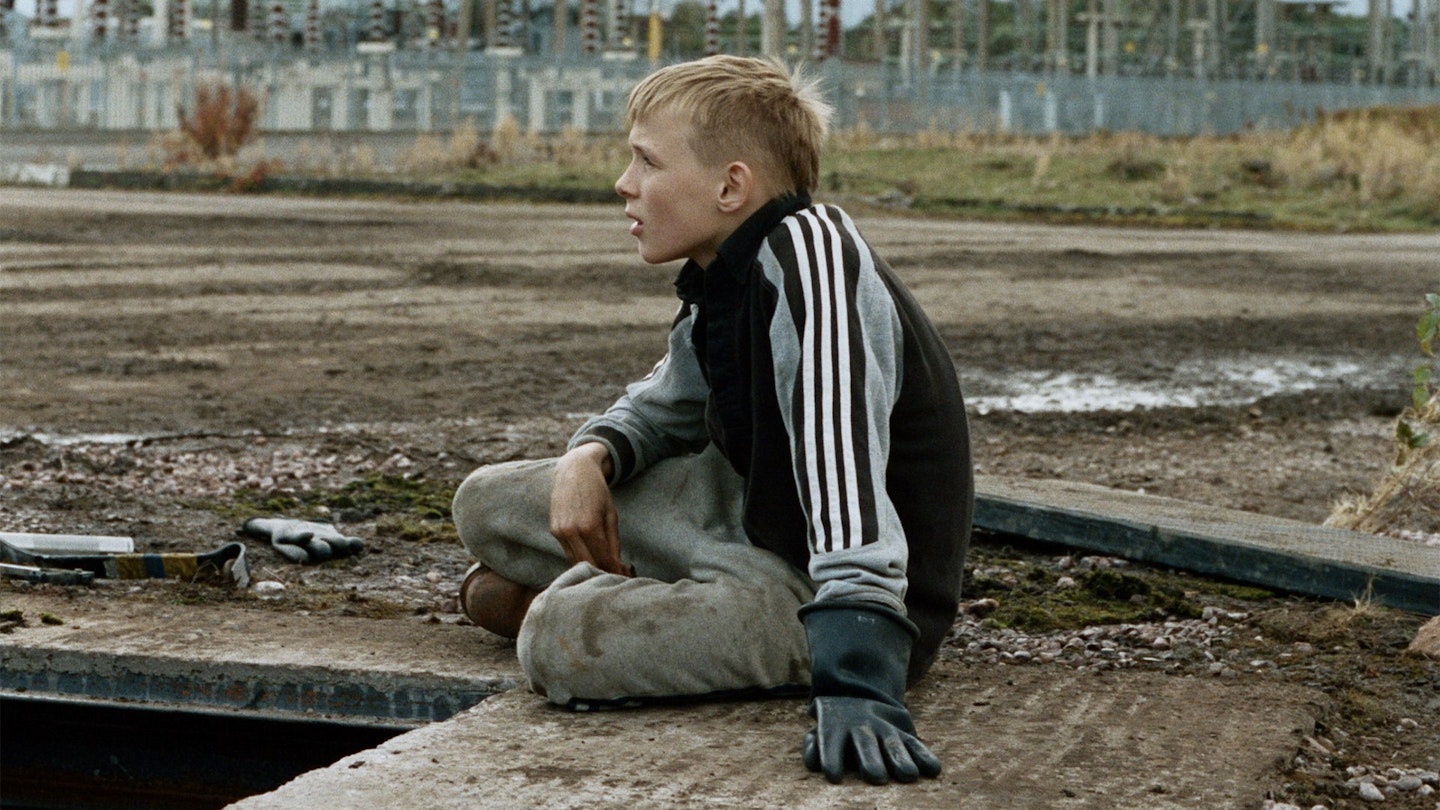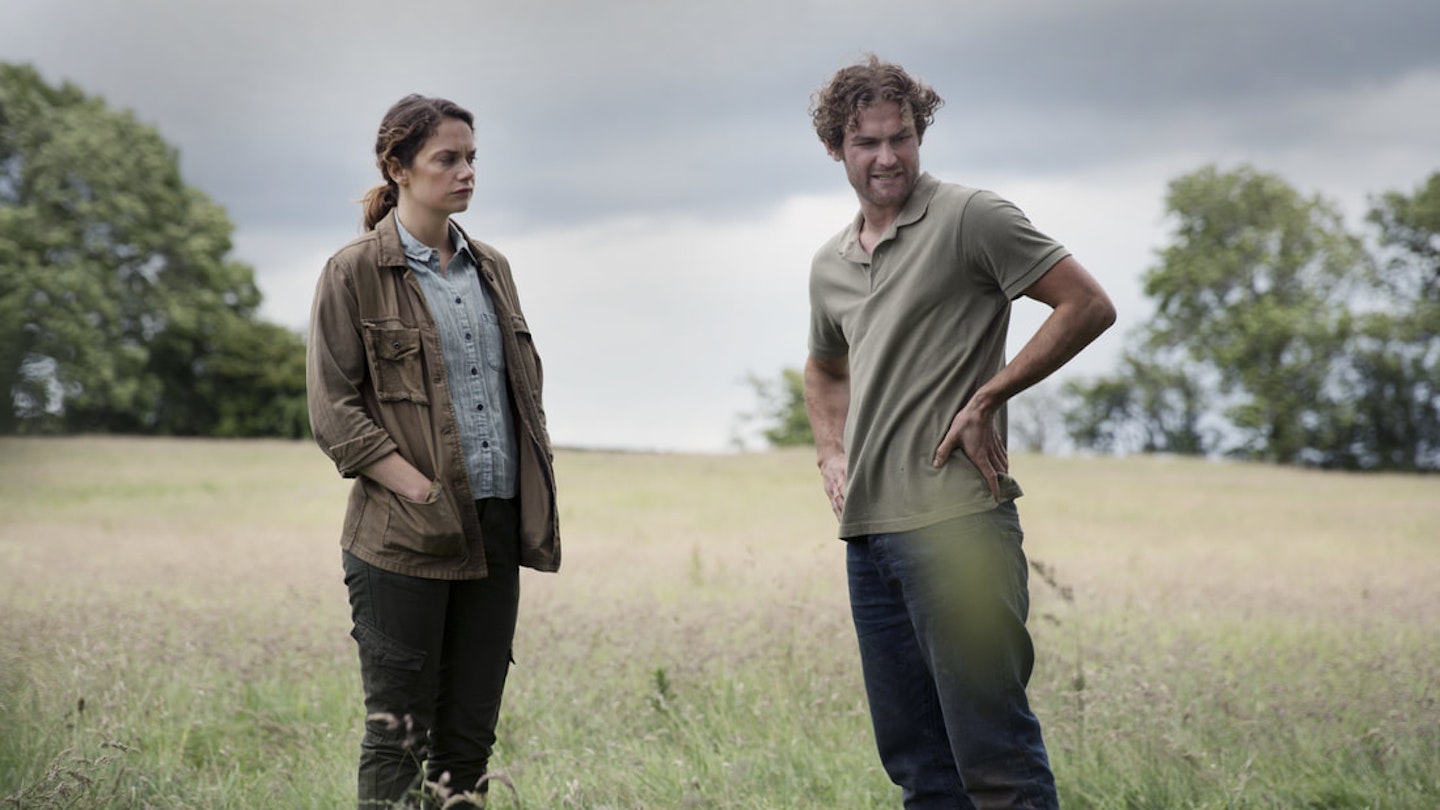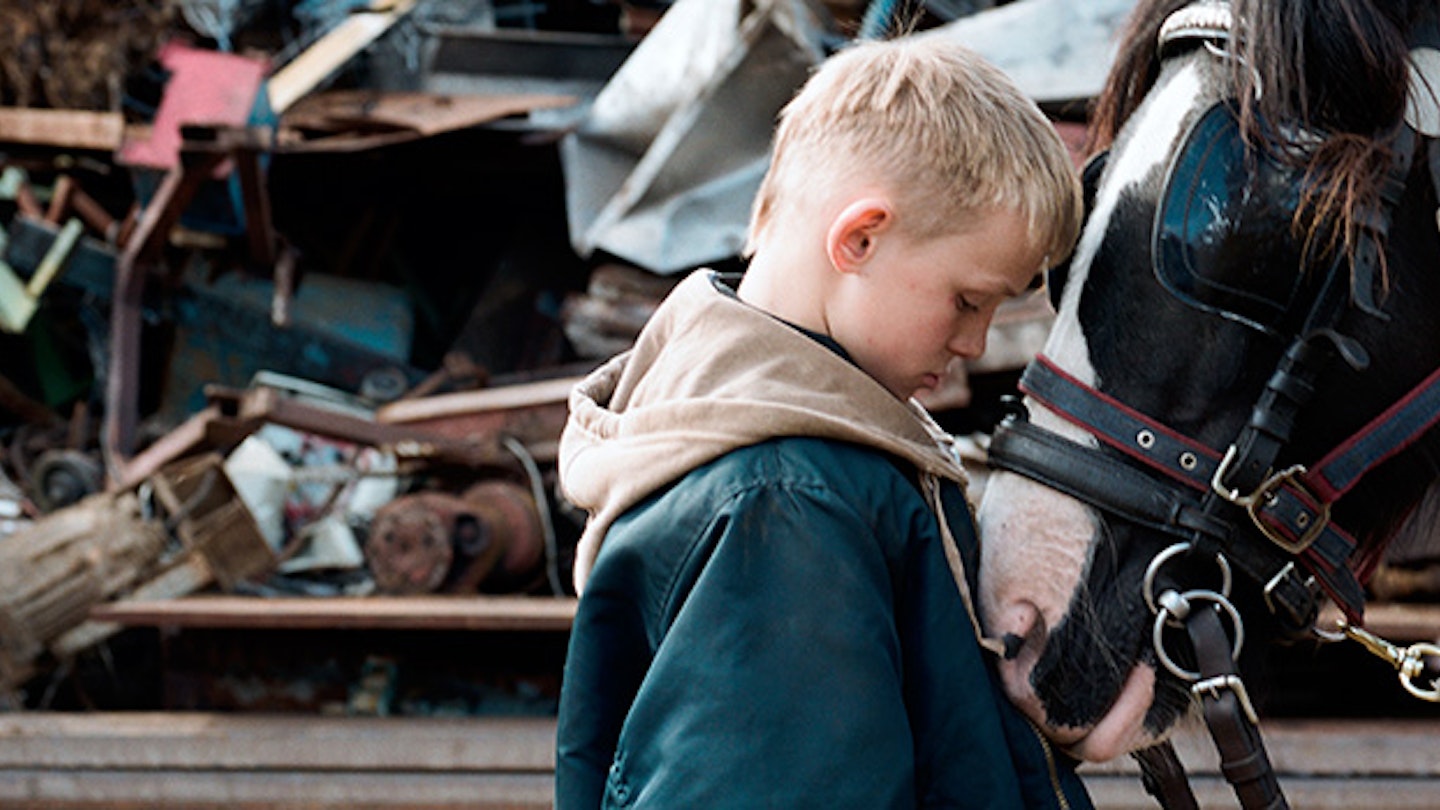The influence of Ken Loach’s Kes hangs heavily over this modern folk tale, not just in its themes of social injustice but in its seamless blending of professional and non-professional actors. Director Clio Barnard’s 2010 verbatim drama The Arbor used actors lip-synching to audio tapes to tell the story of working-class author Andrea Dunbar, who died of a brain haemorrhage aged just 29. That alone should tell you that The Selfish Giant is not going to go the Danny Boyle/Millions route, but what’s remarkable about the follow-up is that though it does, like Kes, tick most of the boxes of post-War realist cinema, it also has some of the rebellious romanticism of the French New Wave.
Most of this is to be found in the character of Arbor (the name an obvious but happily unobtrusive reference to Barnard’s debut), who is played quite brilliantly by Conner Chapman, a ragamuffin punk kid with the street-smarts of the Artful Dodger and the Beat-poet soul of The 400 Blows’ Antoine Doinel. Arbor doesn’t see the dereliction around him, he just wants to get up and out of it, an urgency he is amazed to find lacking in the nice-but-dim Swifty (Shaun Thomas). It’s the boys’ odd-couple dynamic that gives the film a clear and grounded sense of reality.
What’s not quite so clear is the film’s debt to Oscar Wilde’s short story of the same name. There’s no Wildean happy ending in the bag for these boys, but Barnard has a lightness of touch that keeps the story’s humanity as important as the drama. Its elements may seem like a recipe for dour, ’60s-style, kitchen-sink misery, but the effect is much less hectoring and profoundly moving, putting the emphasis not so much on the tragic arc as the unwitting characters. They live in grim times and grim places, but Barnard brings us to them, not them to us, until we see beyond their circumstances. As with Kes, the results are real and raw, a story in which we see the people we all could be — if our choices were fewer and our future more bleak.



